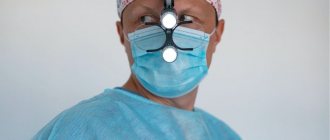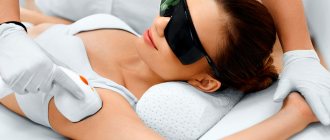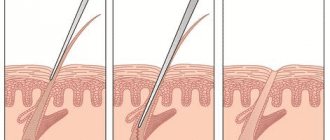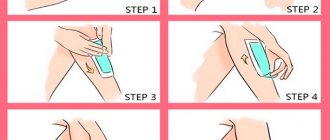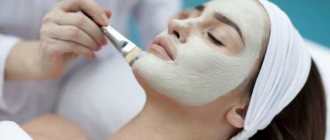We invite you to take a closer look at the features of the professional activities of modern Pygmalions, who restore beauty and youth, allowing people to again feel like a full-fledged member of society and giving them a new life.
A doctor has been one of the most honorable professions in the world since ancient times, and a surgeon is a specialty that is in particular demand. There are many subspecialties in surgery, each of which is of great importance to society. But especially today, plastic surgeons are singled out, whose work is shrouded in an aura of mystery.
Let us note that plastic surgery is one of the most developing and promising industries. This is largely influenced by the fact that millions of appearance correction surgeries are performed every year around the world. Moreover, not only women, but also men use the services of plastic surgeons.
We invite you to take a closer look at the features of the professional activities of modern Pygmalions, who restore beauty and youth, allowing people to again feel like a full-fledged member of society and giving them a new life.
Story
Plastic surgery is a field of medicine that has continuously developed in parallel with other areas of activity of doctors of all times and peoples. History contains references to reconstructive and aesthetic operations dating back to the 3rd millennium BC. e.
The first mentions of interventions aimed at improving the aesthetic qualities of the human body were found in the territory of Ancient Egypt. The operations were described on papyri by doctors who, already in those distant times, tried to improve or correct the appearance of their patients. Patients traditionally became wealthy members of society who could pay for the services of surgeons.
Indian doctors in 900-800. BC e. actively corrected nasal defects. Chinese healers reconstructed damaged eyelids and ears in the 5th century. BC e. Until the 17th century, none of the Europeans could boast of such successes in the field of plastic surgery.
The beginning of the era of reconstructive operations is often called 1597, in which the Italian surgeon Gaspar Tagliacozzi published his treatise with a detailed description of the restoration of tissues of the damaged nose. The doctor used fragments of skin and subcutaneous tissue from the forearm. It is Gaspar Tagliacozzi who is considered in Europe the founder of the profession of plastic surgeon. However, the Italian’s contemporaries did not appreciate his work, and after his death they buried him on land reserved for the bodies of thieves and villains. Such were the moral principles of those times.
Plastic surgery in Russia was recognized as a separate specialty only in 2009. However, already in 1930, a specialized hospital was opened in Moscow, where cosmetic and reconstructive operations were successfully carried out.
The Second World War gave a new impetus to the development of plastic surgery in the USSR and European countries, after which many mutilated patients remained who wanted to restore their usual appearance. Doctors from all over the world actively developed new proprietary techniques, which formed the historical basis for the formation of a new full-fledged specialty.
Benefits of postgraduate study
After completing training, all residents can enter graduate school. If a person wants to connect his life with scientific activity, to give the world new discoveries in the field of plastic surgery, then graduate school is exactly what he needs. The specialist continues his studies at the clinical department, learns from his senior colleagues, and is engaged in scientific activities. This makes it possible to develop your potential, and the ultimate goal of postgraduate study is to defend a Ph.D. dissertation. This is how you can receive the proud title of Candidate of Medical Sciences.
Description and characteristics of the profession
A plastic surgeon is a highly qualified specialist who specializes in aesthetic and reconstructive medicine. There is no need to think that the only responsibilities of a doctor are interventions to enlarge the breast or correct the nasal hump. The corresponding specialty consists of two key sections.
Aesthetic surgery
The doctor’s duty in this case remains to improve the appearance of a specific organ or part of the patient’s body. The most popular operations:
- Reconstruction of the nose.
- Breast augmentation or reduction.
- Brow lift, eyelid lift.
- Liposuction in the breeches area.
- Buttock surgery.
In all of these cases, the surgeon eliminates only the visual defect. There are no changes in the functioning of the patient's internal organs.
Reconstructive surgery
In this case, the task of the plastic surgeon is to restore damaged tissue. Patients seek help after injuries to the limbs, face, and other parts of the body. The doctor is also faced with the need to operate on congenital malformations such as “cleft lip” or “cleft palate”.
Educational process
Priority areas in the residency program: plastic surgery with local tissues, plastic surgery with rotated and displaced flaps, acute and balloon dermotension, plastic surgery with complex composite flaps on microvascular anastomoses, various types of combined plastic surgery, organ-preserving and functionally sparing techniques for locally advanced malignant tumors of the mammary gland; functional rhinoplasty, aesthetic septorhinoplasty, rhinoplasty, plastic surgery of the face and neck in three dimensions, the use of endoscopic technology, modern philosophy of facial rejuvenation, supra and subplatysmal interventions on the fatty tissue of the face and neck, simple and reliable methods of breast augmentation, classical reduction mammoplasty, polyvalent liposuction (tumescent, vibration-rotational (3D), ultrasound, using a high-frequency pulse) and lipotransfer.
Specialties, universities and Unified State Exam subjects
To become a plastic surgeon, you need to graduate from school, pass the Unified State Exam and enter a medical university or institute. When applying for admission, applicants must present the results of the following state exams:
- biology;
- chemistry;
- physics.
After graduating from the institute, you need to undergo an internship in general surgery (2 years) and enter a clinical residency in the specialty “08/31/60 - Plastic Surgery”, for which you need to study for another 2 years.
Popular universities for obtaining relevant education:
- First Moscow Medical University.
- Krasnodar or Rostov State Medical University.
- Russian State Academy of Postgraduate Education.
- Astrakhan State Medical Academy.
During training, young specialists master the theoretical foundations of the profession and improve their own practical skills. 60% of the time, doctors learn how to correctly manipulate surgical instruments to achieve the most attractive aesthetic effect.
The real life of surgeons - what awaits you?
It is not for nothing that the work of a surgeon is recognized as one of the most difficult.
There are many “disadvantages” to being a surgeon
- Tough work schedule. On duty on weekends and at night, emergency calls, overtime work accompanies surgeons in clinics, hospitals, and even commercial medical institutions.
- Difficult working conditions. Performing operations involves long hours of stress, work under artificial lighting, forced posture, contact with aseptics and antiseptics, and biological fluids. The doctor puts his own health at great risk. There is a high probability of damage to the musculoskeletal, cardiovascular, nervous systems, decreased vision, allergic and infectious diseases.
- Psychological stress. Surgery is a constant psychological burden. The work of a specialist is the most responsible. Any mistake can lead to the death of the patient. Even with an ideal operation, the outcome of the disease can be unfavorable. Emergency interventions require immediate mobilization, regardless of well-being and circumstances. In addition, working overtime and night shifts in themselves are stressful for a doctor. All this can gradually lead to “emotional burnout” and the development of psychogenic diseases.
- Possibility of litigation. Unfavorable operational results may result in administrative and legal proceedings. There are especially many precedents for admitting a doctor’s guilt in plastic surgery.
- Low wages. In government institutions, the salary of a surgeon is quite low. This forces doctors to take the maximum number of night shifts, work at one and a half times the rate, take additional jobs in commercial centers, and sometimes leave the profession
The negative aspects of the work do not stop those students who decide to devote themselves to surgery.
It takes a long time to study to become a surgeon. Today, to obtain a certificate, you must graduate from a medical university (6 years) and undergo an internship (1 year) or residency (2 years).
Further specialization may require training in courses for a period of 4 months.
In addition, every 5 years the surgeon must confirm his certificate by studying at the faculty of advanced training for doctors.
It is expected that new standards of medical education will soon come into force in Russia. Training in surgical specialties will take even longer, since the internship will disappear, and residency will only be possible after several years of working as a local doctor. Residency according to the new standards may become longer - from 2 to 5 years.
Responsibilities
Unlike general surgeons, their colleagues in the field of aesthetic medicine almost never face urgent situations. 95% of operations are planned, which allows the doctor to carefully prepare for the upcoming intervention and choose the optimal method for its implementation.
The responsibilities of a plastic surgeon include:
- Correct formulation and formulation of surgical diagnosis.
- Performing pain relief using various methods.
- Knowledge and ability to quickly and efficiently apply an algorithm of action in emergency conditions.
- Knowledge of techniques for stopping bleeding from vessels of various sizes and dressing wounds.
- Ability to apply cosmetic sutures to soft tissues.
- Performing surgical interventions on the thoracic and abdominal organs if necessary.
- Performing primary and secondary treatment of a surgical wound.
- Removing foreign bodies and objects from patient tissue.
The profession of a plastic surgeon involves primarily working with relatively “simple” patients who are not in danger to their life and health. However, the specialist must be knowledgeable in all the basic aspects of providing qualified assistance if necessary.
Who is this profession suitable for?
Not everyone becomes a plastic surgeon. Despite the existing stereotype about the easy and pleasant life of doctors in this specialty, it is not easy to perform the relevant operations efficiently.
The profession requires full dedication from a person and a constant search for new and more effective methods of improving the appearance of other people. Plastic surgery is suitable for creative individuals who have perfect control of their body and movements. The doctor must also have the skills to visualize the expected result in the future. It's like 3D modeling in your head. If there is no understanding of the final goal, the risk of errors during the work process increases.
Practice
During training, the resident has the opportunity to participate in all operations that make up the essence of plastic surgery: rhinoplasty, plastic surgery of the mammary glands, plastic surgery for age-related changes in the face and neck, liposuction, abdominoplasty, plastic surgery of post-traumatic defects and deformities of the limbs, plastic surgery for contractures, microsurgical operations on peripheral nerves, reconstruction of congenital and acquired defects of the urogenital area in men and women. The resident has the opportunity to familiarize himself with the original methods of aesthetic plastic surgery developed at the Department of Plastic Surgery.
Wage
Patients sometimes believe that doctors become plastic surgeons only for the money. Thanks to television, a stereotype has developed that every doctor practicing in this specialty is a millionaire.
In reality, things are a little different. When analyzing vacancies for the position of plastic surgeon in Moscow, the salary ranges from 70 to 400 thousand rubles. By region, the figures are more modest - 10-150 thousand. The final amount is influenced by the following factors:
- The type of clinic where the surgeon works. Frequent centers provide higher fees.
- The doctor's work experience and qualifications. With constant practice, your salary can double within 10 years.
- The introduction of modern medical advances into practice and work with urgent patients also increases the final amount in the doctor’s check.
Administrations of medical institutions can develop separate incentive and bonus systems for particularly active doctors. The size of such financial incentives depends on the characteristics of the clinics.
Advantages of being a plastic surgeon
One of the most significant advantages of this profession is the high demand for qualified specialists, which is only increasing every year. The number of operations performed is constantly growing, and a good plastic surgeon is needed in many institutions. He can find a place in private multidisciplinary clinics or aesthetic surgery centers and research centers.
In addition, a specialist with extensive work experience can count on completing an internship abroad with training from leading surgeons in the world. If they have the necessary management skills, some surgeons open their own clinics.
A high level of income is one of the other significant advantages of the profession. In this case, much depends on the reputation and place of work of the surgeon. Today, good specialists in Moscow on average receive from 65 to 170 thousand rubles, and in Russian regions the salary of a physician ranges from 40-125 thousand rubles. If you manage to get a job in a foreign clinic, your salary may double.
Plastic surgeons very often work with famous and influential people who occupy important places in society. Therefore, if the operation was performed correctly, and the specialist turned out to be a good person, then patients recommend his services to their friends. In addition, such acquaintances also provide good connections.
Since operations have an aesthetic basis, plastic surgeons have a developed sense of beauty and receive great moral satisfaction when they manage to achieve the desired result and make the life of another person a little happier.
How to build a career?
Many young specialists who have already become plastic surgeons are faced with the question of what to do next. Building a career for a specific person is an individual process. There is no single algorithm for achieving success.
The speed of advancement in the medical hierarchy can be influenced by the following factors:
- Doctor's perseverance and high quality of work.
- Constantly work on yourself to improve your skills.
- Establishing contacts with leading plastic surgeons of the country and other countries.
The more a doctor operates, the higher his skill. It is impossible to be a good specialist without a huge amount of theoretical and practical knowledge.
Main subjects studied during specialty training
Residency in plastic surgery includes practical and theoretical parts. In practice, specialists work with patients, assist surgeons during operations, and, in general, prepare for medical work. But during the theoretical part, future specialists study all the intricacies of general and private surgery, features of the blood supply and innervation of human soft tissues, and much more. In this specialty, it is important to master not only the theory, but also to practice well in practical training.
Prospects for the profession
An analysis of trends in modern society indicates that more and more people of different social groups are turning to plastic surgeons for help. This means that the profession will become even more attractive in the future.
Today, vacancies can be quite easily found in the following medical institutions:
- Private clinics providing services in the field of aesthetic medicine.
- Oncology centers. Most often, reconstruction of the mammary gland is required after its partial or complete removal.
- Trauma centers. Here the restoration of damaged limbs is carried out.
- Multidisciplinary clinics with a plastic surgeon position.
The desire to be beautiful is an integral part of almost every person. Until this fact changes, plastic surgeons will always have a job.
If you still have even the slightest doubt that the profession of a plastic surgeon is right for you, then we strongly recommend taking a career guidance test from Profguide . It costs mere pennies, and at the same time allows you to avoid mistakes that can go in the wrong direction and cripple your whole life. Find out more >>

